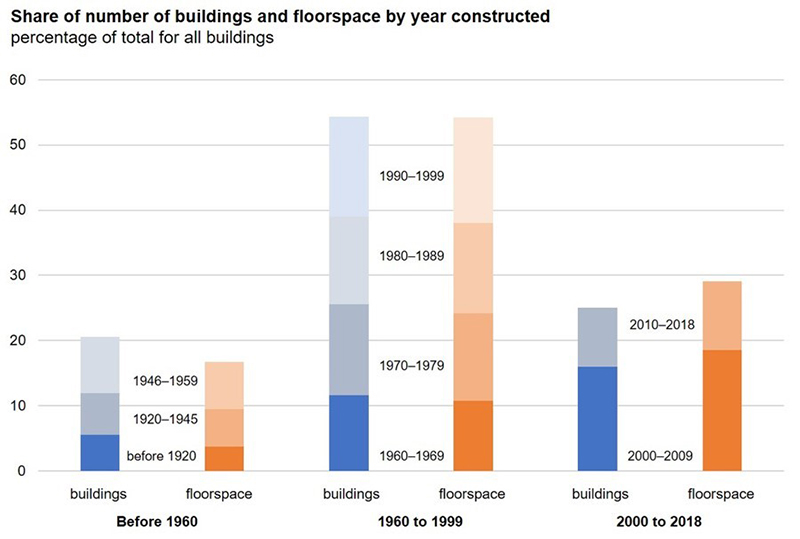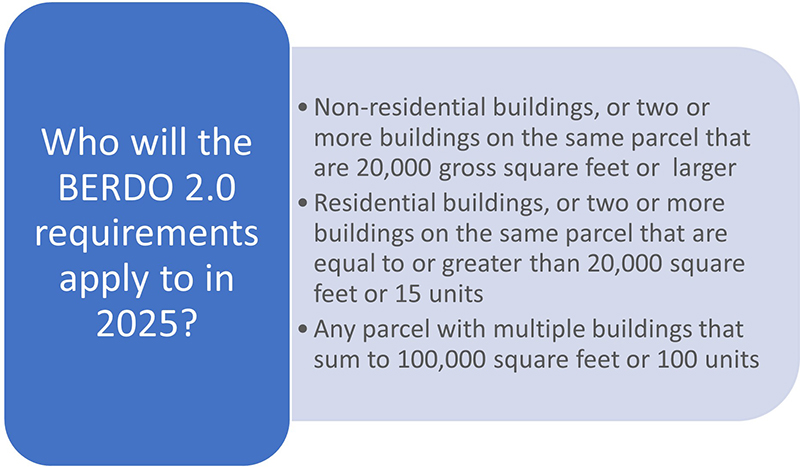
Buildings account for over 70% of greenhouse gas emissions in Boston. As part of Boston’s initiative to address climate change, the City of Boston enacted the Building Energy Reporting and Disclosure Ordinance (BERDO) in May 2013 by the Boston City Council to reduce emissions, including greenhouse gases from energy production, encourage efficient use of energy and water, and develop investment in a green economy by requiring the reporting and disclosure of annual energy and water use in all large buildings (over 35,000 s/f or have 35 units or more). The City of Boston’s 2019 Climate Action Plan Update introduced an amendment to replace the energy action and assessment requirement with a building emissions performance standard by 2021. (see CHART 1)

Since 2013, commercial and non-commercial buildings with floor space over 50,000 s/f in Boston have been required to report their energy and water use to the City of Boston. In 2016 and 2017, non-residential and residential buildings greater than 35,000 gross s/f were added to the initiative and are also required to report their usages. In 2022, the requirement expanded and also applies to all buildings over 20,000 gross s/f.
With the enactment of BERDO 2.0, buildings must comply with a phased carbon dioxide emission standard starting in 2025, which reduces to carbon neutral by 2050. Currently, the building owner is required to self-certify the reporting data every year; however, starting with the 2025 report filed in 2026, a third-party verification will be required. The 2025 verification must include the prior five years (2021-2025) and is to be performed by a qualified Energy Professional. Third-party verifications are required every five years thereafter.
BERDO-2.0 provides carbon dioxide emission standards for a variety of building uses. For each five-year interval, the emission standard must be reduced until net-zero standard is reached in 2050. Alternative emission reduction schedules can be applied but require compliance with a 50% reduction by 2030 and 100% by 2050. Renewable energy certificates, power purchase agreements, and alternative compliance payments can be purchased to help offset emissions.
Read more on IFMA’s website.
 (1).png)







